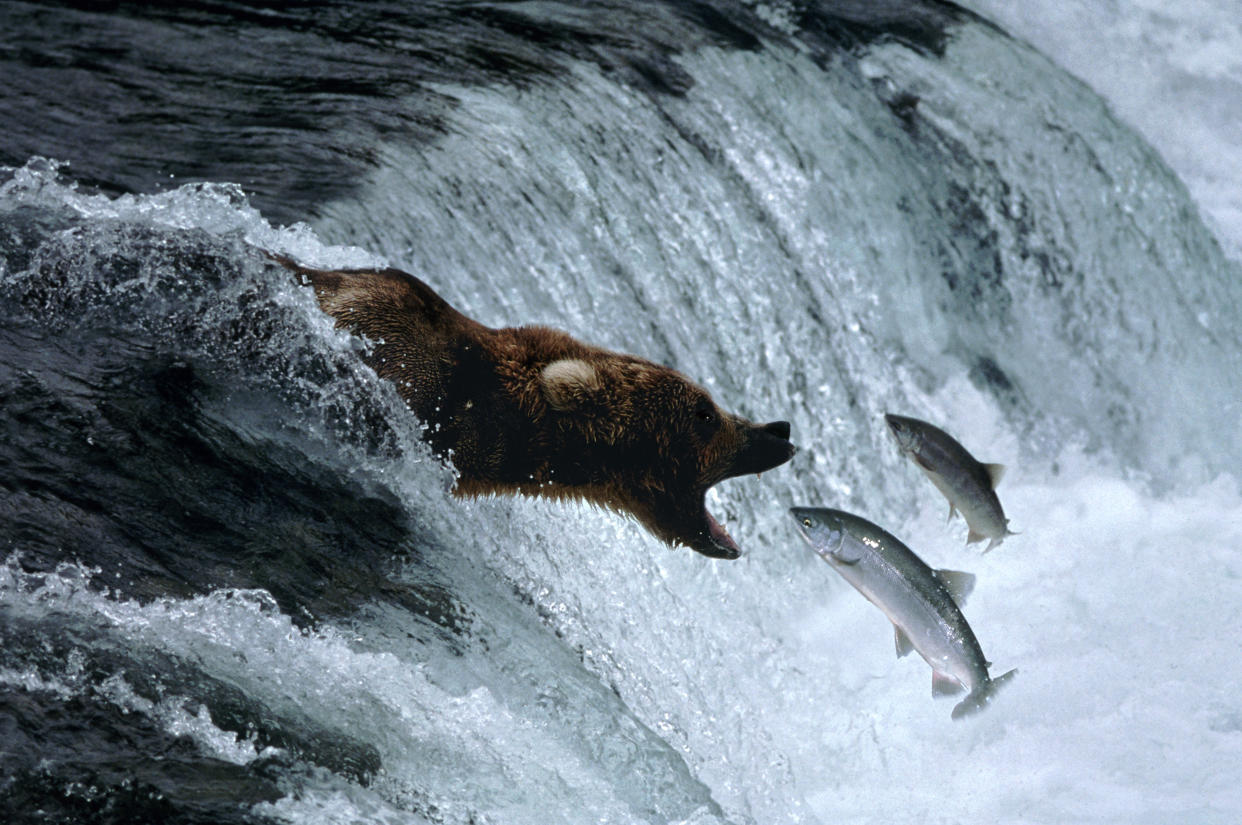Wildlife photographer turns lens on starving B.C. bears

Photos posted to Facebook show a family of emaciated grizzly bears in search of fish near the shores of B.C.’s Knight Inlet. The image highlights the consequences of climate change not only to the animals, but also to the depleting wild salmon population.
The images were shot by wildlife photographer Rolf Hicker, who spotted the skeletal bears while giving a boat tour.
A report conducted by Fisheries and Oceans Canada this summer found that the country’s climate is warming twice as fast as the global average, which is having a direct affect on the salmon’s ecosystem. Commercial fishermen in the region describe this salmon season as the worst it’s been in half a century.
Jake Smith, guardian watchman manager for the Mamalilikulla First Nation, told CNN that he’s been monitoring the bears over the last few months and can see that they are in trouble.
In an attempt to help the animals, Smith coordinated 500 salmon donated by A-Tlegay Fisheries Society on Vancouver Island, to be divided along the shorelines that the bears are known to visit. Last Sunday, volunteers delivered the fish by boat, and the grizzlies were ready to feast.
"We were about 30 feet away from them," Smith told the news outlet. "A little grizzly looked up at us and the mother bear came out to get the fish."
According to the Nature Conservancy of Canada, bears weight between 220 to 880 pounds. While they forage on plants and berries, their main source of food is salmon. Grizzly bears spend five to seven months of the year hibernating. They fatten up over summer and fall months in order to survive hibernation by living off the fat they’ve built up.
The lack of food in the region is forcing the bears to relocate to other nearby islands in search of sustenance.
Over the last few years, the wild salmon population has been on the decline throughout the province. In September, commercial fishing advocates approached the government for assistance. According to CTV, warmer climate has affected the water temperature, which directly impacts the salmon run. In addition, open-net fish farming is also having an impact on wild salmon population as a result of spreading disease and pollution in the water.
Last December, the B.C. government and First Nations introduced a plan to shift away from open-net farming by 2023 in an effort to recover wild salmon population.

